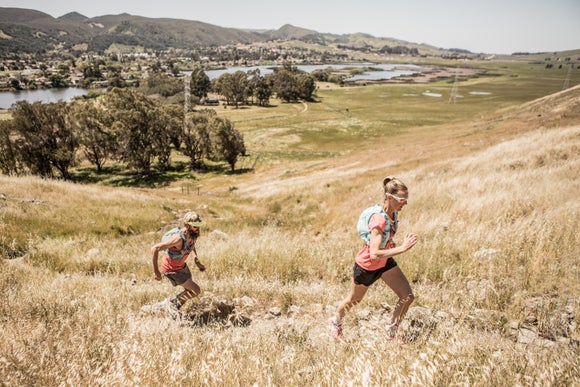What to Eat Before a Race
A nutrition guide to properly fuelling your body before the next big race.

While there is no special elixir that can magically give you the abilities of Bolt or Kipchoge right before a race, there are plenty of nutritional tips that will prepare your body to perform at its best. In preparing for an event, you should be putting as much thought into your nutrition as your workouts. Whether you are gearing up for a track and field meet, cross country event, marathon, or just a good hard run, you will want to fuel your body appropriately for the effort.
Food is Fuel
......
Carbohydrates
For endurance exercise such as running, carbohydrates provide the most readily available form of energy for our bodies. Our bodies use glucose from carbs to help fuel our muscles so that we can continue to perform throughout our runs.
When glucose is stored in your body, it is called glycogen. Unlike fat, which can be stored in the body in almost unlimited quantities, the storage available for glycogen is limited. It is stored primarily in your muscles and liver, accounting for only about 1 to 2% of your total energy stores.
A hard workout can quickly deplete glycogen stores, which could lead to fatigue and decreased performance. To avoid this, it is important to begin your workout with your glycogen stores topped up and with enough available glucose to get you through your event.
Protein
After approximately 90 minutes of exercise, glycogen stores in the body can become completely depleted, which can lead to muscle cannibalisation. In this process, the body converts lean muscle tissue into additional glucose, which can lead to muscle soreness, stiffness, or, in more extreme cases, injury.
This is why eating small amounts of protein is particularly important for longer runs. Protein combined with carbohydrates in your pre-run meal can reduce tissue cannibalisation and increase muscle protein synthesis, leading to prolonged and improved performance.
Fats
As mentioned above, glycogen is the primary fuel source for short, high-intensity workouts. However, your body also uses fat as fuel, especially on longer or lower intensity runs. You probably do not want to chow down on a stick of butter before your morning run, but including a small amount of healthy fats in your pre-run meal can be very beneficial and provide much-needed fuel for longer runs.
Fibre
Including high-fibre foods in your everyday diet is healthy and can support the overall well-being of the intestinal tract. However, when it comes to pre-race nutrition, you’ll want to avoid consuming large quantities, as it can lead to unwanted gastrointestinal distress like gassiness, bloating, and diarrhoea, which can derail any race.
|
Key Takeaways
|
Shop Energy Gels
Quantity and Timing
......
How Much To Eat
When considering how much a runner should eat before a race, balance is the main focus. Eating too much or not eating at all will have extremely adverse effects on your performance. The total quantity of food a runner should eat before a race is a bit of a Goldilocks situation—you don’t want too little or too much, only what is just right. To find this perfect balance, runners should experiment with different foods and quantities throughout training to find the exact pre-race meal that works best for them.
It is generally advised that a runner's pre-race meal should be 400-700 calories and consist primarily of carbohydrates. It is also encouraged that runners eat a 100-200 calorie carb-rich snack before their race. If these two meals are timed properly, then runners should have ample energy to conquer their run.
When To Eat It
The timing at which you eat your pre-race meal and pre-race snack is once again, all about balance. Finding that "just right" time to eat is crucial to maximising available energy and avoiding GI distress. Runners should aim to eat their larger pre-race meal 2-4 hours before their race, and their pre-race snack roughly 30 minutes to an hour before race time. These recommended timing windows should provide ample time for runners to properly digest their food and avoid any digestive issues during their race. But once more, to get the most out of your nutrition, we highly recommend experimenting during training to lock in the ideal amount and timing for your individual needs.
|
Key Takeaways
|
Shop Energy Bars & Waffles
Hydration
......
Hydration is another critical component of race-day nutrition, and without proper implementation runners can experience reduced muscle strength, stamina and overall energy. Even worse, dehydrated runners are much more susceptible to injuries. This is why having a specific hydration plan can be so crucial in the lead up to a race. It is recommended that runners drink roughly 450-600ml of water in combination with their pre-race meal to ensure adequate hydration before the race. Runners should also drink another 450ml of fluids 1 hour to 30 minutes before a race.
Sports drinks and hydration mixes can further hydrate athletes and provide runners with additional electrolytes and carbohydrates. Keep in mind that hydrating before a race also needs to be properly balanced in regards to timing and quantity. Too little hydration can lead to bonking, while too many fluids can flush much-needed electrolytes out of the system and cause stomach discomfort.
|
Key Takeaways
|

